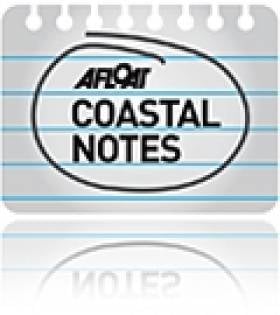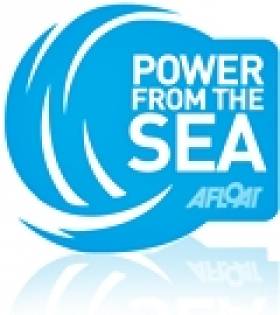Displaying items by tag: foreshore licence
Dalkey Island Oil Licence Surrendered
#DalkeyOilProspect – Providence Resources, who have been planning to explore for oil and gas in Dublin Bay, has surrendered its foreshore licence to the Department of the Environment, reports The Irish Times.
The Dublin based exploration company had planned to drill off the coast of Dalkey, in the Kish Basin.
In a statement this afternoon, the company said it made the decision to surrender the licence when it became clear that elements of an EU directive on environmental impact assessment (EIA) "were not transposed correctly in 1999 by the Irish Government". For more on this story click HERE.
Minister Rejects Public Inquiry into Dublin Bay Oil Drilling
#DALKEY ISLAND PROSPECT – Environment Minister Phil Hogan has rejected a call by Tánaiste Eamon Gilmore and others for a public inquiry into Providence Resources foreshore licence application to survey and drill for oil and gas in Dublin Bay, the Irish Times reports.
Mr Hogan has said that as the application by Providence Resources for survey and drilling work 6kms off Dalkey Island was the subject of public consultation, he did not consider a public inquiry "necessary".
Tánaiste and Labour Dún Laoghaire TD Eamon Gilmore said earlier yesterday that Mr Hogan should exercise his right to hold an oral hearing under the foreshore legislation. Last month, the Green Party and a number of residents in the Dalkey area also called for an inquiry.
Speaking in Galway yesterday, Mr Gilmore acknowledged that a "couple of wells" had been drilled in Dublin Bay previously, but there were a "lot of issues" relating to the current application.
To read more about this story click HERE
Dolphin Group Comments on Dalkey Island Prospect
#DALKEY ISLAND PROSPECT - The Irish Whale and Dolphin Group (IWDG) has joined the chorus of opposition to the proposed oil and gas exploration off Dalkey Island in Co Dublin.
As previously reported on Afloat.ie, Providence Resources has applied for a foreshore licence to search for oil or gas about 6km out to sea on the Kish Bank Basin.
But the prospect has provoked a split in the local community over the potential risks and benefits, with many calling for a public enquiry into the licence before it is granted.
This evening an urgent meeting in Dun Laoghaire will address the public's concerns, which have been echoed by the IWDG.
"The Kish Bank and adjacent waters are important for cetaceans," said the group in a statement. "In addition, sightings of bottlenose dolphins have increased dramatically in the area following the presence of a group of three individuals since August 2010."
The IWDG is concerned about the potential effects on dolphins and porpoises that "could due to noise generated from the drilling process", noting that "there is little published data on the intensity and effects of sound generated by drilling".
Protest group Protect Our Coast has launched a online petition against the Dalkey Island Prospect citing concerns over the proximity of the drilling area to the mainland as well as the Special Protection Area of Dalkey Island, which is a haven for marine wildlife.
- Irish Whale and Dolphin Group
- IWDG
- Dalkey Island Prospect
- Coastal Notes
- Dalkey Island
- Dublin
- oil and gas
- exploration
- drilling
- Providence Resources
- foreshore licence
- Kish Bank Basin
- community
- Dun Laoghaire
- bottlenose dolphins
- Porpoises
- Cetaceans
- noise
- sound
- Protect Our Coast
- protest
- petition
- Special Protection Area
- marine wildlife
Oil and Gas Firm Issued Licence to Explore Off Dalkey Island
#POWER FROM THE SEA - Irish oil and gas firm Providence Resources has been awarded a licence to explore near Dalkey Island, the Irish Independent reports.
The standard licence issued by the Department of Communications, Energy and Natural Resources lasts for up to six years, split into two three-year phases.
Providence hopes to drill at least one well during the initial phase in the Kish Bank Basin, where previous exploration drilling confirmed the presence of oil suitable for petroleum production.
The group is also applying for a foreshore licence for the purpose of well site surveys and drilling operations.
As previously reported on Afloat.ie, Providence Resources is one of the 12 companies that were awarded 13 Licensing Options between them in the 2011 Atlantic Margin Licensing Round.
The Irish Independent has more on the story HERE.































































